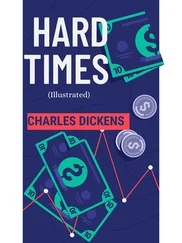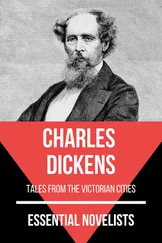Except one, which was apart from his necessary progress through the mill. Time hustled him into a little noisy and rather dirty machinery, in a by-comer, and made him Member of Parliament for Coketown: one of the respected members for ounce weights and measures, one of the representatives of the multiplication table, one of the deaf honourable gentlemen, dumb honourable gentlemen, blind honourable gentlemen, lame honourable gentlemen, dead honourable gentlemen, to every other consideration. Else wherefore live we in a Christian land, eighteen hundred and odd years after our Master?
All this while, Louisa had been passing on, so quiet and reserved, and so much given to watching the bright ashes at twilight as they fell into the grate, and became extinct, that from the period when her father had said she was almost a young woman—which seemed but yesterday—she had scarcely attracted his notice again, when he found her quite a young woman.
“Quite a young woman,” said Mr. Gradgrind, musing. “Dear me!”
Soon after this discovery, he became more thoughtful than usual for several days, and seemed much engrossed by one subject. On a certain night, when he was going out, and Louisa came to bid him good-bye before his departure—as he was not to be home until late and she would not see him again until the morning—he held her in his arms, looking at her in his kindest manner, and said:
“My dear Louisa, you are a woman!”
She answered with the old, quick, searching look of the night when she was found at the Circus; then cast down her eyes. “Yes, father.”
“My dear,” said Mr. Gradgrind, “I must speak with you alone and seriously. Come to me in my room after breakfast to-morrow, will you?”
“Yes, father.”
“Your hands are rather cold, Louisa. Are you not well?”
“Quite well, father.”
“And cheerful?”
She looked at him again, and smiled in her peculiar manner. “I am as cheerful, father, as I usually am, or usually have been.”
“That's well,” said Mr. Gradgrind. So, he kissed her and went away; and Louisa returned to the serene apartment of the haircutting character, and leaning her elbow on her hand, looked again at the short-lived sparks that so soon subsided into ashes.
“Are you there, Loo?” said her brother, looking in at the door. He was quite a young gentleman of pleasure now, and not quite a prepossessing one.
“Dear Tom,” she answered, rising and embracing him, “how long it is since you have been to see me!”
“Why, I have been otherwise engaged, Loo, in the evenings; and in the daytime old Bounderby has been keeping me at it rather. But I touch him up with you when he comes it too strong, and so we preserve an understanding. I say! Has father said anything particular to you to-day or yesterday, Loo?”
“No, Tom. But he told me to-night that he wished to do so in the morning.”
“Ah! That's what I mean,” said Tom. “Do you know where he is tonight?'—with a very deep expression.
“No.”
“Then I'll tell you. He's with old Bounderby. They are having a regular confab together up at the Bank. Why at the Bank, do you think? Well, I'll tell you again. To keep Mrs. Sparsit's ears as far off as possible, I expect.”
With her hand upon her brother's shoulder, Louisa still stood looking at the fire. Her brother glanced at her face with greater interest than usual, and, encircling her waist with his arm, drew her coaxingly to him.
“You are very fond of me, an't you, Loo?”
“Indeed I am, Tom, though you do let such long intervals go by without coming to see me.”
“Well, sister of mine,” said Tom, “when you say that, you are near my thoughts. We might be so much oftener together—mightn't we? Always together, almost—mightn't we? It would do me a great deal of good if you were to make up your mind to I know what, Loo. It would be a splendid thing for me. It would be uncommonly jolly!”
Her thoughtfulness baffled his cunning scrutiny. He could make nothing of her face. He pressed her in his arm, and kissed her cheek. She returned the kiss, but still looked at the fire.
“I say, Loo! I thought I'd come, and just hint to you what was going on: though I supposed you'd most likely guess, even if you didn't know. I can't stay, because I'm engaged to some fellows tonight. You won't forget how fond you are of me?”
“No, dear Tom, I won't forget.”
“That's a capital girl,” said Tom. “Good-bye, Loo.”
She gave him an affectionate good-night, and went out with him to the door, whence the fires of Coketown could be seen, making the distance lurid. She stood there, looking steadfastly towards them, and listening to his departing steps. They retreated quickly, as glad to get away from Stone Lodge; and she stood there yet, when he was gone and all was quiet. It seemed as if, first in her own fire within the house, and then in the fiery haze without, she tried to discover what kind of woof Old Time, that greatest and longestestablished Spinner of all, would weave from the threads he had already spun into a woman. But his factory is a secret place, his work is noiseless, and his Hands are mutes.
CHAPTER XV
FATHER AND DAUGHTER
ALTHOUGH Mr. Gradgrind did not take after Blue Beard, his room was quite a blue chamber in its abundance of blue books. Whatever they could prove (which is usually anything you like), they proved there, in an army constantly strengthening by the arrival of new recruits. In that charmed apartment, the most complicated social questions were cast up, got into exact totals, and finally settled—if those concerned could only have been brought to know it. As if an astronomical observatory should be made without any windows, and the astronomer within should arrange the starry universe solely by pen, ink, and paper, so Mr. Gradgrind, in his Observatory (and there are many like it), had no need to cast an eye upon the teeming myriads of human beings around him, but could settle all their destinies on a slate, and wipe out all their tears with one dirty little bit of sponge.
To this Observatory, then: a stern room, with a deadly statistical clock in it, which measured every second with a beat like a rap upon a coffin-lid; Louisa repaired on the appointed morning. A window looked towards Coketown; and when she sat down near her father's table, she saw the high chimneys and the long tracts of smoke looming in the heavy distance gloomily.
“My dear Louisa,” said her father, “I prepared you last night to give me your serious attention in the conversation we are now going to have together. You have been so well trained, and you do, I am happy to say, so much justice to the education you have received, that I have perfect confidence in your good sense. You are not impulsive, you are not romantic, you are accustomed to view everything from the strong dispassionate ground of reason and calculation. From that ground alone, I know you will view and consider what I am going to communicate.”
He waited, as if he would have been glad that she said something. But she said never a word.
“Louisa, my dear, you are the subject of a proposal of marriage that has been made to me.”
Again he waited, and again she answered not one word. This so far surprised him, as to induce him gently to repeat, “a proposal of marriage, my dear.” To which she returned, without any visible emotion whatever:
“I hear you, father. I am attending, I assure you.”
“Well!” said Mr. Gradgrind, breaking into a smile, after being for the moment at a loss, “you are even more dispassionate than I expected, Louisa. Or, perhaps, you are not unprepared for the announcement I have it in charge to make?”
“I cannot say that, father, until I hear it. Prepared or unprepared, I wish to hear it all from you. I wish to hear you state it to me, father.”
Читать дальше
Конец ознакомительного отрывка
Купить книгу












